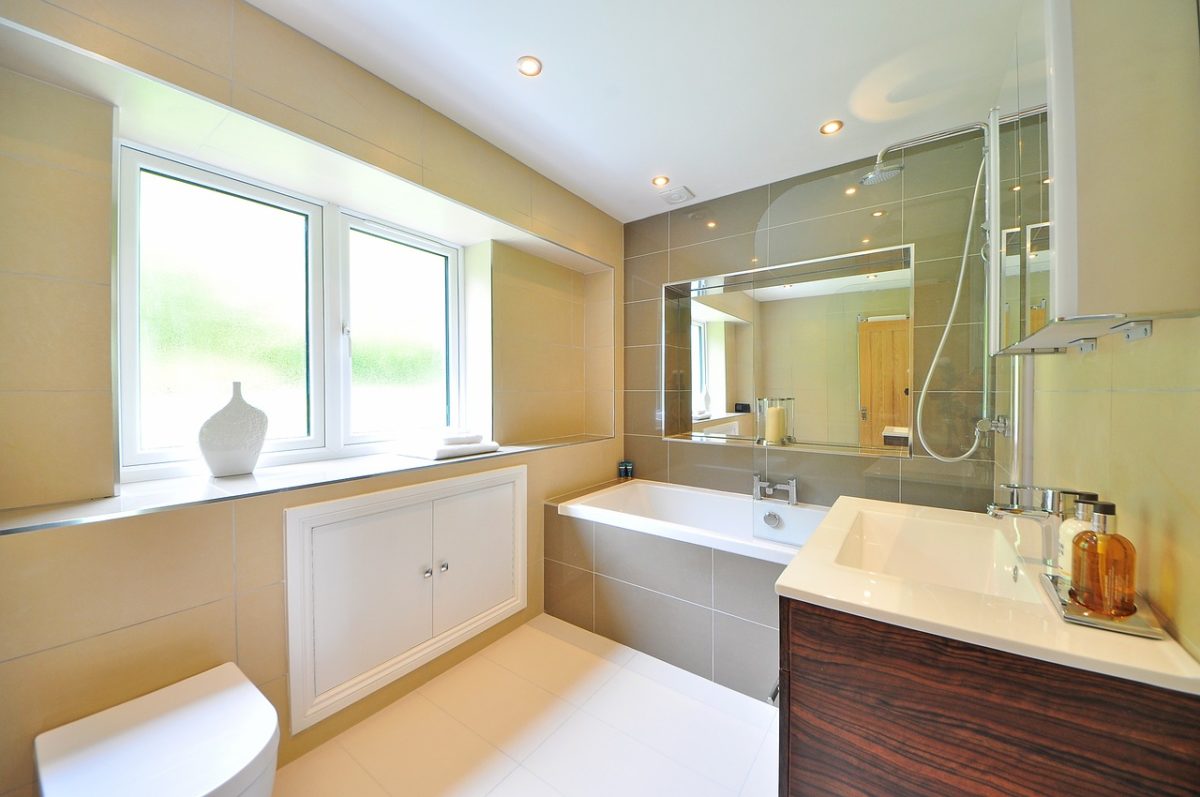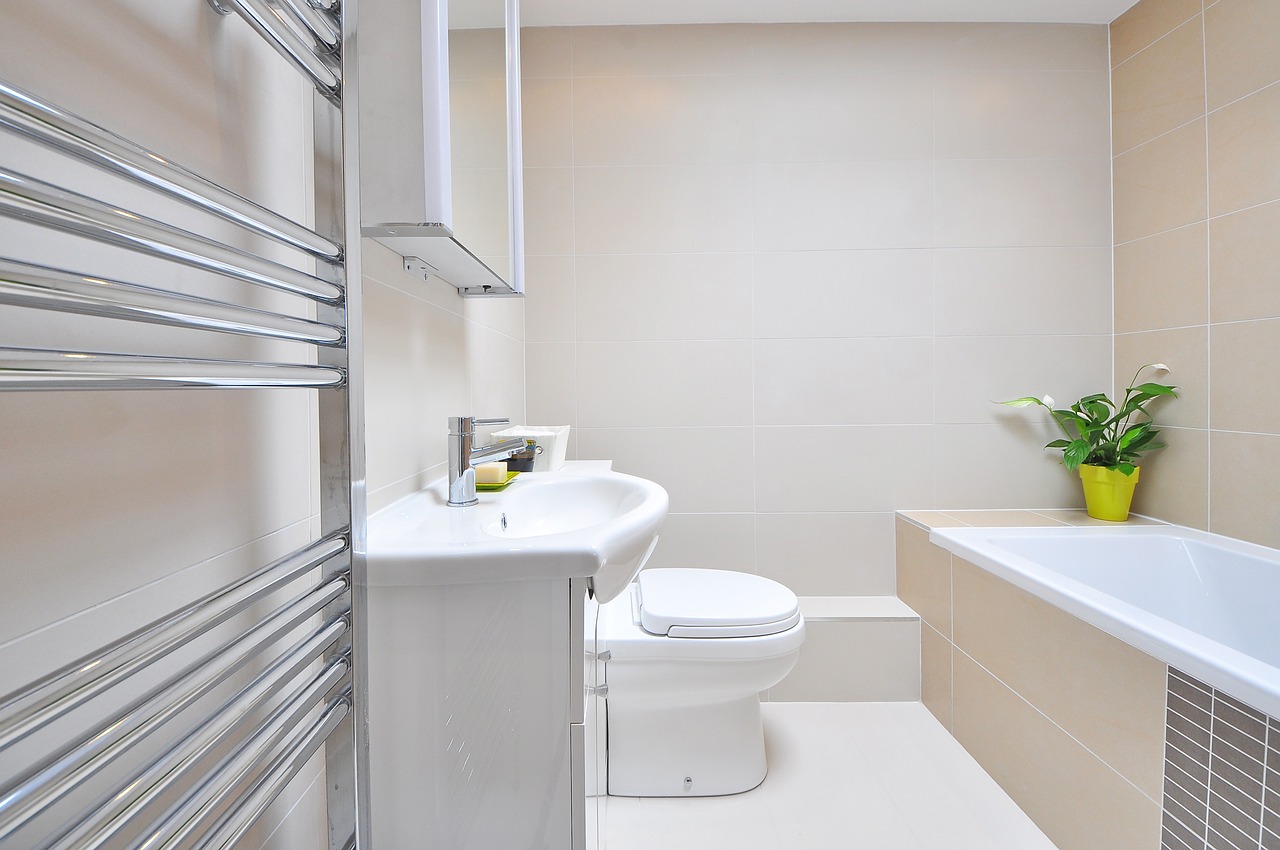Selecting The Right Bathroom Countertops
When it comes time to renovate or remodel your bathroom, one of the most important choices for both the look and function of your new bathroom is going to be your decision on what countertops to install. Not only will it need to fit in seamlessly with the cosmetics of the room, but it will need to be a robust and sturdy work surface as well. Your bathroom countertops will need to stand up to daily use and will need to repel wear & tear, as well as signs of potential aging such as blemishes and discoloration.
There are many different potential choices for countertop materials, with each having its own unique benefits, costs, and maintenance requirements. Not only will some of these likely surprise you, but if you weigh all of your options against what your needs are, you may even find that some of these or other materials are what you need for your bathroom to look its best.
Laminate
Laminate is one of the most affordable options for a bathroom countertop and is often available in a wide range of colors, patterns, and finishes, some of which are even designed to look like other surfaces like granite or solid surface.
Laminates are incredibly versatile and they stand up to water and daily physical wear and tear, including staining, pretty well. They will dull over time, and they are able to be dented in unusually abusive circumstances, and they are easily burned and deformed by heat.
Tile
Tile is a classic, and it holds up fairly well over time, but you pay for that in maintenance to keep the tile and grout looking nice. Tiles can range from relatively cheap, for simple tiling done by yourself, to incredibly expensive for detailed mosaics or luxury materials that need extremely skilled tiling tradesmen to install.
Tile is available in any color or pattern imaginable, and can also be further customized after installation. Tile is very easy to clean, however maintaining the grout lines can be tedious and will detract from the appearance if let go. Ceramic tile is heatproof. Another drawback is the uneven surface that tiling creates on the countertop.
Wood
An uncommon yet highly sustainable and affordable choice for a bathroom countertop, wood is an option often used by those looking for a rustic or artisanal feeling for the bathroom. Many people are drawn to the large, thick butcher block style countertops, just be aware that they do take some adjustment.
Wooden countertops are often much thicker than other materials, often requiring specially measured or cut holes for water handling. The upside of wood is that it can be cleaned relatively easily and resist bacteria. On the other hand, you will need to make sure it stays oiled and free of gouges or scratches.
Granite & Marble
These are both high-end materials that need special care and maintenance, but they can also lead to a far better resale value when installed in main suite baths in particular. They have a sleek, high-class look that puts them in the upper end of the price scale.
Granit will repel most standard stains and discolorations, however, it will need to be specially sealed against grease penetration. This is important since many cosmetic products will have grease or oils in them. Marble will stain incredibly easily, so that should be kept in mind when deciding.
Engineered Stone
Engineered stone is made from quartz combined with a variety of colorings or pigments, mixed with a polyresin, and poured into a mold so that it can be worked just like a slab of granite. This results in a stone-like material that is ultra-durable and resists heat and staining. Since it is manufactured, it is available in a much wider array of colors.
Engineered stone has a number of benefits over the real thing. Not only is it non-porous and resistant to cracks or scratches, but it does not require the yearly sealing treatment that conventional natural stone countertops need.
Solid Surface
Solid surface countertops are made from fillers, often some sort of ore like bauxite, and resins like polyester or acrylic. These components mean that solid surfaces are technically made from nonrenewable resources, like oil and natural gas, but once combined they are incredibly safe and durable.
Solid surface countertops do not off-gas any VOCs, they are non-toxic, they are incredibly stain-resistant, and it does not react with many substances making it highly stable. They are affordable, easy to clean and maintain, and any scratches can be easily buffed out. A significant drawback though is that they cannot withstand hot items being placed on them.
Choosing the right countertop for your bathroom does not need to be an arduous task. If you need more help, contact Pablo Marble and Granite. We are willing to help you renovate your bathroom so you can enjoy it for years to come.


